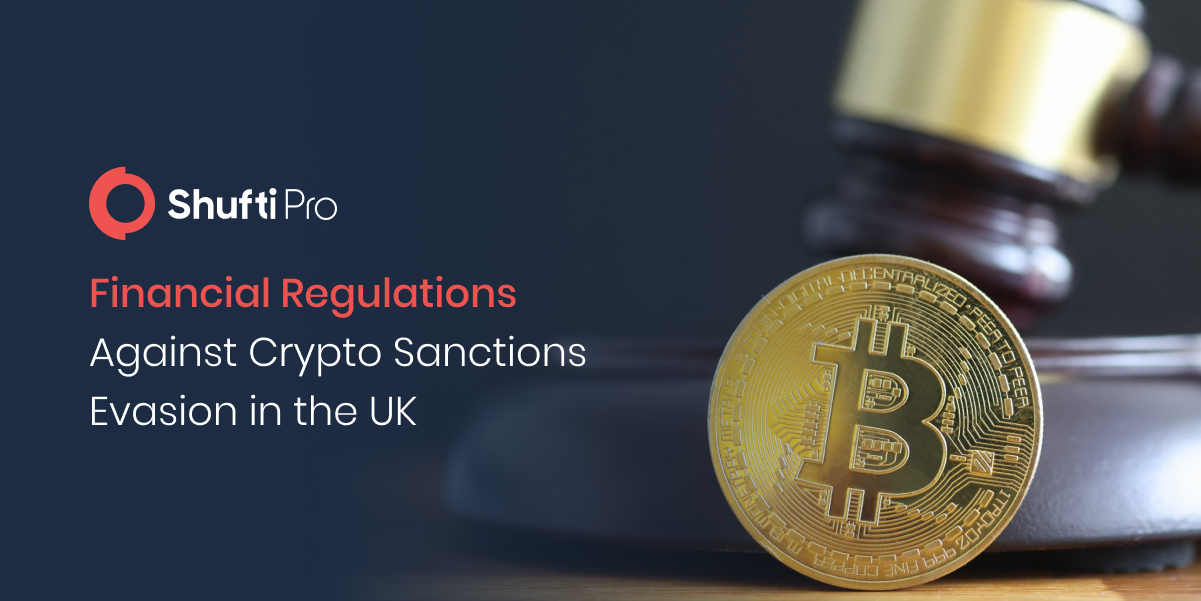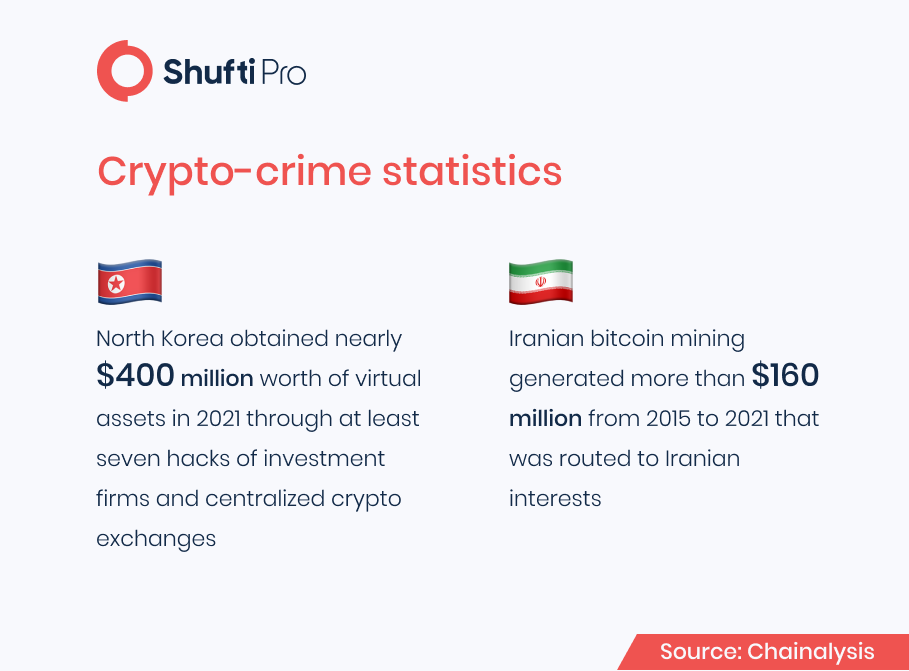Financial Regulations Against Crypto Sanctions Evasion in the UK – Is the Crypto Sector Safe?

Many governments throughout the world are facing concerns of money laundering and sanctions evasion as a result of global sanctions following the Russia-Ukraine conflict. New regulations from the UK’s financial authorities highlight the lack of scrutiny of digital assets and have provided guidance regarding sanctions evasion.
The latest regulatory guidelines from the UK’s financial authorities highlight the reality – sanctions do not specifically differentiate between normal assets and virtual assets. The Financial Conduct Authority (FCA), the Office of Financial Sanctions Implementation (OFSI), and the Bank of England issued a joint statement to provide guidelines to businesses regarding sanctions evasion.
The Looming Risk of Sanctions Evasion
Crypto firms need to stay vigilant for red flags and suspicious activities that show signs of being linked to the ultimate risk of sanctions evasion. Even the seemingly-legitimate customers should be taken through a series of steps to analyze their risk factor and their transaction history. For instance, customers that belong to or travel from high-risk jurisdiction that is known to be the host of illicit financing are serious red flags. So are the transactions that link back to crypto wallets of entities that are present on sanctions lists, as well as transactions that were made through crypto exchanges that did not have adequate customer due diligence measures in place.
In some cases, bad actors use tools that are developed to change the virtual location of the customer by altering the IP address in a similar way to VPNs. These and other methods that are used by criminal entities to make illicit transactions appear normal are red flags of sanctions evasion.
How to Handle Suspicious Crypto Transactions
The FCA has addressed the registered virtual asset firms in the UK and the ones that have a temporary registration with the following statement: In case any business has “reasonable cause to suspect” that they are in possession, in control of, or dealing with the money or economic resources of a sanctioned individual, they must freeze them, stop dealing with them or make them available to the designated person, unless there is an exception in the current legislation or have a license from the OFSI.
Moreover, UK’s financial regulators also reminded financial institutions to identify whether the crypto asset firms they deal with are registered businesses and to verify the address in the jurisdiction register where the firm is based. The FCA and the Prudential Regulation Authority (PRA) have stated that they will now take action against authorized financial institutions that do business with crypto-asset firms operating illegally in the UK. In case of suspicious transactions, businesses are obliged to report their finding to the UK Financial Intelligence Unit (UKFIU) at the National Crime Agency under the Proceeds of Crime Act 2002.
UK Regulators Stepping Up Against Sanctions Evasion
It was after the west imposed a flood of sanctions on Russia and Belarus that businesses started facing a rising concern of financial crimes that use cryptocurrencies and other digital assets to evade sanctions. Consequently, UK financial regulators repeated their guidelines that require all financial institutions operating in the UK to take every possible preventive measure to ensure that they comply with sanctions. However, crypto firms are also among the targeted financial institutions now.
Setting their sights on crypto asset firms, the joint statement from the authorities noted: “We are working closely with partners in government and law enforcement both here and abroad, including regulatory authorities, to share intelligence and act to prevent sanctions evasion, including through crypto-assets. We also remain ready to act in the event of sanctions breaches”.
The concerns of regulatory bodies are adequately justified as evidence of sanctioned entities and individuals proves that cryptocurrencies are being used to circumvent illegally optained funds. This has resulted in the global Financial Stability Board to start scrutinizing the potential gap that may become a major threat in the near future. As of now, regulators are getting no response to their call that cryptocurrency firms are not compliant with sanctions.
For instance, some crypto firms clearly rejected the requirement to restrict services for Russian customers and stated that their business will take a significant hit if they do so. However, the UK financial regulators have repeatedly highlighted that sanctions are equally applicable to both financial institutions and cryptocurrency firms. Evasion of economic sanctions through virtual assets is considered an equally offensive crime under the 2017 Money Laundering Regulations and the regulations that fall under the 2018 Sanctions and Anti-Money Laundering Act.
What Virtual Asset Service Providers (VASPs) Should Do
Cryptocurrency service providers need to secure the assets of their customers while staying compliant with regulatory requirements. According to the new guidance provided by UK authorities, crypto firms should take necessary action to mitigate the risks of sanctions evasion through virtual assets. These include the improvement of business and customer risk analysis measures and update them for transactions in crypto. It is important for crypto firms to implement robust identity verification solutions to secure customer onboarding. In order to eliminate bad actors who use shell companies and do not disclose the real owners in order to launder money. This requires the processes of customer due diligence and, in high-risk cases, enhanced due diligence.

Furthermore, crypto service providers are required to carry out transaction monitoring so that their customers are screened against global sanctions lists and suspicious activity is reported. That’s not all, suspicious activity includes transactions that deviate from the usual pattern followed by the customer, which need reporting in a timely manner. Considering blockchain systems, compliance with sanctions includes the monitoring of transactions that are associated with high-risk crypto wallet addresses.
What Shufti Offers
Considering the current situation of sanctions evasion, it is clear that firms will need to be vigilant in the crypto landscape. With developments like DeFi, stablecoins, and NFTs, fraudsters are creating new ways to evade sacntions.
Combating money laundering and other financial crimes, cryptocurrency exchanges need to implement rigid AML checks and customer identification procedures in place. In addition to this, These practices have been endorsed by financial watchdogs as well as have shown encouraging results in reducing crimes.
Shufti’s robust AML screening solution performs background check on end-users by screening them against watch lists compiled by regulatory authorities such as the FATF, EU, FINTRAC, AUSTRAC, and others. It involves authenticating the user information against 1700+ watch lists, global sanctions, and Politically Exposed Person (PEP) lists in less than a second with 98.67% accuracy. As a result, fraudulent customers are detected and compliance targets are easily met.
Want to learn more about AML Screening for your digital currency services?

 Explore Now
Explore Now













